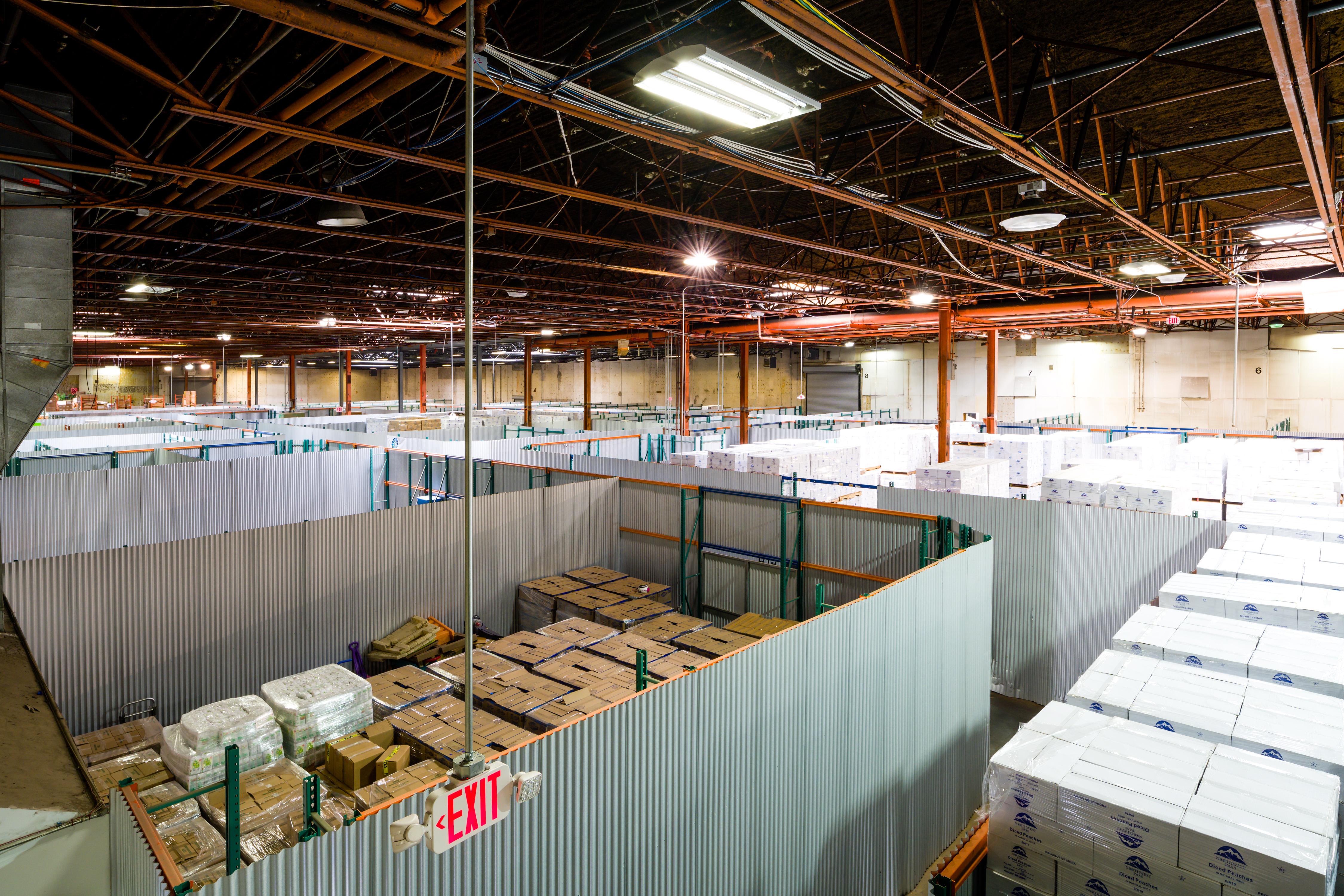Jon Zimmerman — the co-founder of ReadySpaces, a warehouse storage provider for small businesses — was working in the self-storage market when he had the idea for a product with the flexibility of self-storage but the capabilities of a traditional warehouse, aimed primarily at enterprise customers. His partner, Kevin Petrovic, had a different company that was a customer of Jon’s at his first “beta” location, in the ’90s. The two started working together to grow ReadySpaces — formerly CustomSpace — into a nationwide business.
Today, ReadySpaces operates 32 warehouses and services a customer base of over 2,000 businesses. That impressed investors, evidently, who pledged $20 million in the startup as a part of an all-debt funding round that closed today. Bringing ReadySpaces’ total raised to $40 million, the new funding will fuel expansion, Petrovic says, as ReadySpaces prepares to roll out new services.
Why opt for debt as opposed to equity? Petrovic claims that it was “the most efficient capital structure for growth” given the current financial environment. It’s definitely true that equity is harder to come by these days, with valuations dropping and debt financing slowly gaining in popularity.
“We have an ambitious growth plan for 2023 and this capital will allow us to remain the leader in the co-warehousing space,” Petrovic told TechCrunch in an email interview. “Certain pandemic-related pressures, such as backups in major ports, have eased, but we see our business model continuing to resonate every day for both established businesses and small companies just starting off.”
While ReadySpaces has been around in some form since 2013, it’s only in recent years that co-warehousing has become a hot trend. The pandemic supercharged co-warehousing, which allowed physical goods businesses (e.g., manufacturers of household products and construction materials) dealing with supply chain challenges to store inventory without having to purchase a facility.
In a co-warehousing setup, multiple companies can use the same warehouse space — eliminating the need for the companies to invest in the infrastructure themselves. For example, ReadySpaces offers co-located units in sizes ranging from 200 to 5,000 square feet, each equipped with power units, loading docks and forklifts, Wi-Fi, industrial workspaces, and private offices and conference rooms.

Petrovic posits that co-warehousing lets businesses insure against economic uncertainty and busy periods, such as holidays, by providing affordable, scalable storage for reserve inventory.
“The need for small warehouse space isn’t constrained to small businesses,” Petrovic said. “We’ve worked with numerous Fortune 500 companies to provide short-term overflow space. The key is that we take an asset class that moves slowly and is generally difficult to operate in and make it absolutely seamless.”
Certainly, ReadySpaces’ competitors have demonstrated the demand for co-warehousing. Saltbox, a company providing co-working and warehousing space for up-and-coming e-commerce businesses, recently attracted a $128 million investment from real estate investment platform Fundrise to expand its footprint. And last year, private equity real estate firm Capstone Equities launched Portal Warehousing, a flexible warehouse solution offering smaller spaces and share amenities, which plans to expand to cities, including Los Angeles, Brooklyn and Las Vegas, in the coming months.
As for ReadySpaces, Petrovic claims that the Los Angeles–based company — which employs around 50 people — is “comfortably profitable,” with revenue growing approximately 50% year over year.
“Since our last announcement, we have opened numerous new locations and in a few new markets as well. For example, Queens, New York; Kearny, New Jersey; Saddle Brook, New Jersey; and Round Rock, Texas, are all recent new sites,” Petrovic said. “We don’t have a burn rate … Nationally, we’ve seen demand skyrocket by 375% over the last three years.”
One point of concern is a slowdown in consumer spending related to inflation, which could depress sales in retail and, by extension, the demand for warehouse space. The warehouse industry is running the risk of oversupply, some experts say, as developers heavily invest in warehouse expansion. Q2 2022 saw a record 613 million square feet of warehouse space built in the U.S. — almost double the construction pipeline in 2019.
Petrovic acknowledged the headwinds, but insisted that ReadySpaces is in a position to weather them.
“There are numerous major shifts in the industrial real estate market happening now due to robust demand and high development costs,” he added. “Our focus is on navigating these market changes successfully so we can continue to provide the product that we know customers love.”































Comment